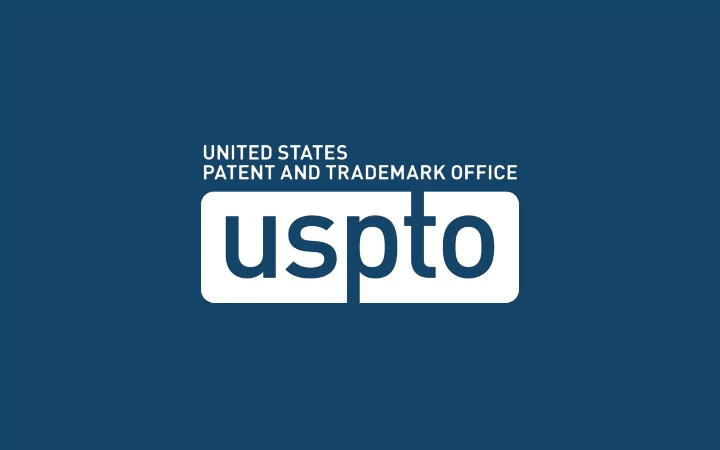

Boardside Chat: Discovery in AIA Trials Administrative Patent Judges Grace Obermann and Sally Medley Practitioner Erika Arner, Finnegan Henderson Practitioner Scott McKeown, Oblon Patent Trial and Appeal Board Webinar Series (3 of 5) June 2, 2015
Boardside Chats Date Time Topic Speakers Tuesday, August 4 Lead Judge Susan Mitchell AIA Rulemaking and Guidance Changes Noon to 1 pm Eastern Time Tuesday, October 6 Best Practices before the PTAB Panel of Administrative Patent Judges 3
Agenda Topics Presenter AIA Discovery Procedures Lead Judge Grace Obermann Judge Sally Medley AIA Discovery Rules in Practice Erika Arner Scott McKeown Trends and the Future All panelists Q&A Ms. Gongola (moderator) 4
Overview of AIA Discovery Discovery in AIA Proceedings is limited compared to that provided in • District Court Limited discovery facilitates the Board’s mandate to issue Final Written • Decisions within one year of institution Limited discovery promotes efficient and economical use of Board and • party resources In AIA proceedings, discovery is conducted in sequence, not • simultaneously; sequential discovery streamlines and converges the issues for decision
Discovery Period Discovery
Types of Discovery (37 C.F.R. § 42.51) • Mandatory initial disclosures • Routine discovery – Exhibits cited in papers and testimony – Cross-examination of witnesses – Inconsistent information • Additional discovery
§ 42.51 (a): Mandatory Initial Disclosures (1) With agreement. Parties may agree to mandatory discovery requiring the initial disclosures set forth in the Office Patent Trial Practice Guide. (i) The parties must submit any agreement reached on initial disclosures by no later than the filing of the patent owner preliminary response or the expiration of the time period for filing such a response. The initial disclosures of the parties shall be filed as exhibits. (ii) Upon the institution of a trial, parties may automatically take discovery of the information identified in the initial disclosures. (2) Without agreement. Where the parties fail to agree to the mandatory discovery set forth in paragraph (a)(1), a party may seek such discovery by motion.
§ 42.51(b)(1): Routine Discovery Except as the Board may otherwise order: (i) Unless previously served or otherwise by agreement of the parties, any exhibit cited in a paper or in testimony must be served with the citing paper or testimony. (ii) Cross examination of affidavit testimony prepared for the proceeding is authorized within such time period as the Board may set. (iii) Unless previously served, a party must serve relevant information that is inconsistent with a position advanced by the party during the proceeding concurrent with the filing of the documents or things that contains the inconsistency. This requirement does not make discoverable anything otherwise protected by legally recognized privileges such as attorney-client or attorney work product. This requirement extends to inventors, corporate officers, and persons involved in the preparation or filing of the documents or things.
§ 42.51 (b)(2): Additional Discovery (i) The parties may agree to additional discovery between themselves. the parties fail to agree, a party may move for additional discovery. The moving party must show that such additional discovery is in the interests of justice, except in post-grant reviews where additional discovery is limited to evidence directly related to factual assertions advanced by either party in the proceeding ( see §42.224). The Board may specify conditions for such additional. (ii) When appropriate, a party may obtain production of documents and things during cross examination of an opponent's witness or during authorized compelled testimony under §42.52.
Garmin Factors for Additional Discovery 5 factor test to evaluate requests for additional discovery: • 1. More than a possibility and mere allegation must exist that something useful will be found 2. Is the request merely seeking early identification of opponent’s litigation position 3. Can the party requesting discovery generate the information 4. Requests should be easily understandable, including interrogatory questions 5. Are the requests overly burdensome to answer Requests for specific documents with a sufficient showing of relevance are more likely to be granted • than requests for general classes of documents, which are typically denied
AIA Trial Rulemaking Final rule went into effect upon publication on May 19, 2015, • encompassing “ quick- fixes” Proposed rules to be published by end of July 2015 to address • additional rule changes and modifications to the Trial Practice Guide
Proposed Rulemaking Relating to Additional Discovery Wide range of comments received: from freely-permitting additional • discovery, maintaining limited discovery, or offering no/rare discovery Some commenters advocate for continued application of the Garmin • factors Some commenters advocate for continued application of the Garmin • factors with some change to certain factors or addition of factors Some commenters seek permissive discovery •
Questions?
Boardside Chats Date Time Topic Speakers Tuesday, August 4 Lead Judge Susan Mitchell AIA Rulemaking and Guidance Changes Noon to 1 pm Eastern Time Tuesday, October 6 Best Practices before the PTAB Panel of Administrative Patent Judges 15
Thank You
Recommend
More recommend